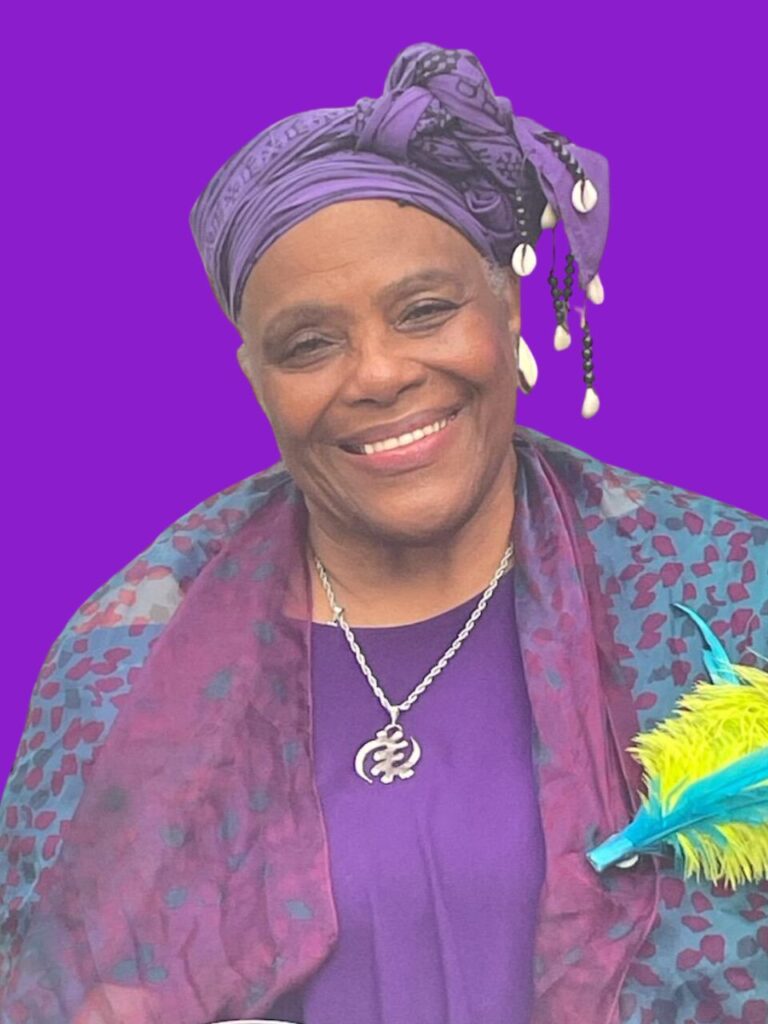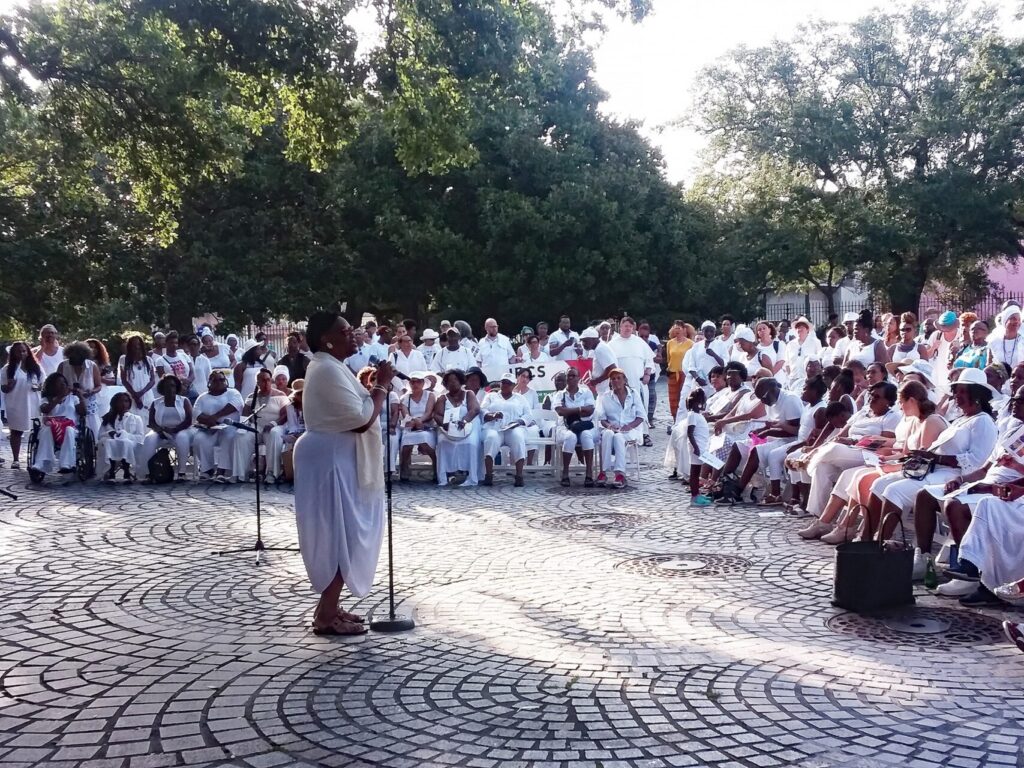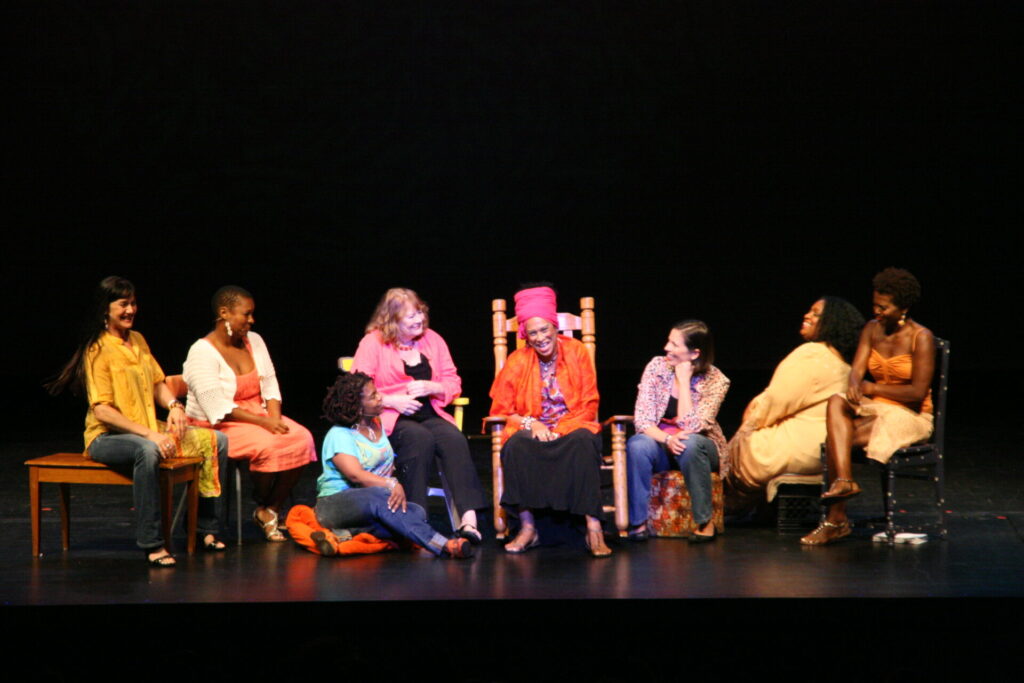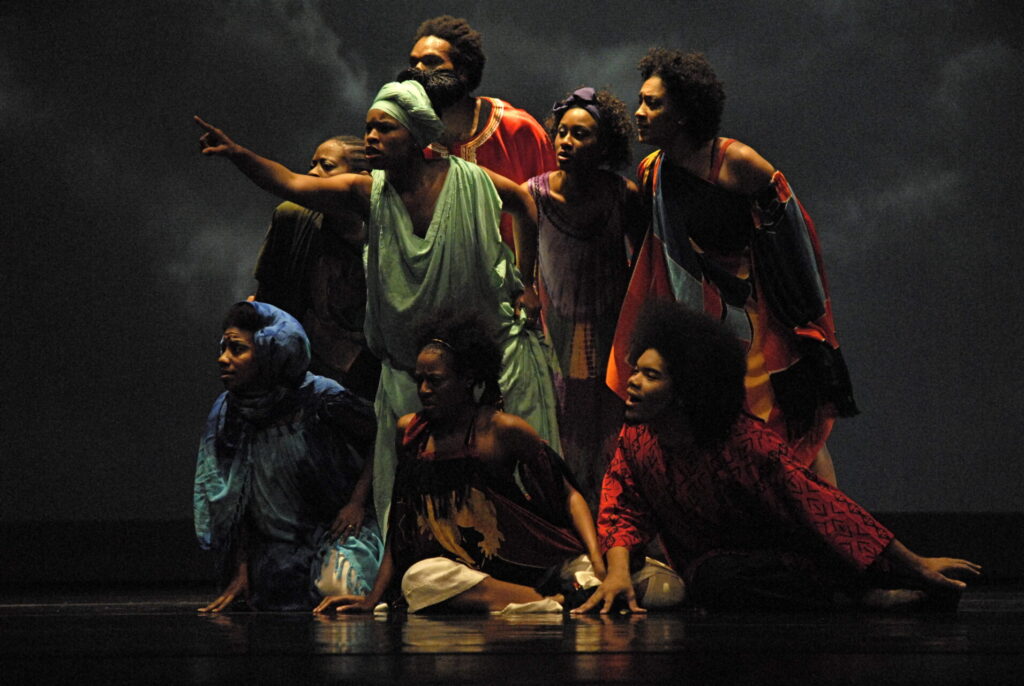Carol Bebelle aka AKUA – Dance/USA Artist Fellow

Carol Bebelle aka AKUA
she/her
Carol Bebelle is a native New Orleanian. She holds a Master’s Degree from Tulane University in Education Administration and has a 20 year career in the public sector as an administrator and planner of human service programs.
In 1990, Carol established a private consulting firm offering planning, development, and grant writing services to human service programs. Her clients were non-profits, religious programs, entrepreneurs and artists. She is a published poet and essayist. Her written works can be found in various anthologies, reports, and journals.
In 1998, Carol Bebelle and Douglas Redd founded Ashé Cultural Arts Center (Ashé CAC), an organization dedicated to community and human development using culture and art. Ashé CAC became a central player in the rebuilding of New Orleans, particularly the Central City community and the cultural landscape for artists and culture bearers. She ended her term as Executive Director of Ashé Cultural Arts Center at the end of 2019. She continues a 40 year extended career of producing theater, dance, poetry, and community cultural events in New Orleans. After leaving Ashé, she established AKUA Productions NOLA as her platform for work going forward.
Carol is a popular panelist, commentator and advisor on the foundational and transformative power of culture. She has participated in international, national, and local processes aimed at emerging the resilient and healing powers of culture and art for cultural, social, and equitable change in the world.
Carol has an impressive collection of international, national and local awards and acknowledgments. She is an active member of her community and dedicated servant leader.
Land Acknowledgment:
New Orleans is a city like no other, resting on storied soil once known as Bulbancha — “the land of many tongues,” in the language of the Choctaw. Long before it was marked on any colonial map, this land pulsed with the footsteps and voices of the countless Indigenous nations. Here, along the great Mississippi, cultures converged, stories intertwined, and a vibrant mosaic of life thrived.
As we gather in New Orleans today, we do so on sacred ground — the ancestral homelands of the Chitimacha, Choctaw, Houma, Atakapa, Caddo, Natchez, Tunica, and many petites nations whose spirits still move through the city’s rhythms and roots. Their legacy is not only remembered — it lives, resilient and resounding, in the heartbeat of this place.
We also lift up the enduring legacy of African-descended peoples, whose forced arrival through the transatlantic slave trade gave rise to one of the most extraordinary cultural tapestries in the world. By 1803, people of color made up the majority of this city’s population — many born into bondage, yet others freed through the system of Spanish manumission, becoming known as gens de couleur libres.
Their influence shaped New Orleans at its core — in its music, its spirit, its food, its faith. Congo Square, now part of Armstrong Park, rang out with drums and dancing, trading and rejoicing — a space of survival and celebration. The echoes of those gatherings can still be felt in the pulse of the second line, in the soul of Black Mardi Gras, in the sound of the city itself.
We honor all those who journeyed to this land in search of something better — the French and Spanish settlers. We acknowledge the Irish, Italian, and German immigrants who arrived with hope in their hearts, and the Haitians who came seeking refuge. In more recent times, we lift up the stories of the Vietnamese, Hondurans, and Mexicans who came in pursuit of brighter days.
Bulbancha — the place of many tongues — remains true to its name, alive with voices, cultures, and histories that continue to shape this land. We acknowledge this rich, complex, and ever-evolving tapestry of human presence that weaves together the story of Louisiana. With reverence and gratitude, we honor the roots of New Orleans — the deep, enduring forces that make this place not just unique, but sacred.
Learn more about Carol Bebelle aka AKUA:



